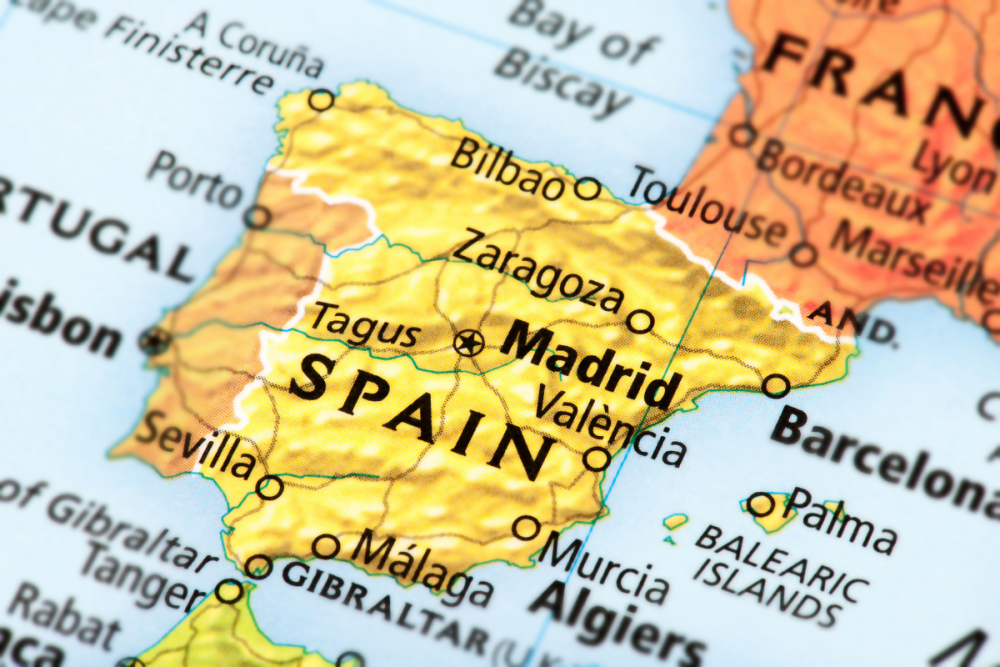What You Need to Know When Moving to Spain From the US

Thinking of swapping the Stars and Stripes for sun, siestas and sangria? Moving to Spain from the US is an exciting prospect that comes with its own set of challenges and cultural quirks to get your head around.
As a melting pot of regional identities, incredible food, wine and architecture, Spain offers an amazing lifestyle – if you know what to expect. This insider guide covers all the need-to-know tips for Americans making the move across the pond.
Plan Your Move
The first step is ensuring you have the proper visa situation sorted to stay in Spain long-term. US citizens can stay visa-free for up to 90 days, but anything longer requires a residence visa. The most common is the non-lucrative visa, which requires proving you have sufficient income and healthcare provision.
Before hiring an international moving company, you should know that the application process can take months, so get started as early as possible. Having an employment contract, marriage to a Spanish citizen or existing EU residency can make things easier visa-wise. Job hunting once you’ve arrived is possible but more challenging.
The Time Zone
When you travel from the USA to Spain, it’s important to remember the time zone differences. The relatively small time difference between the US East Coast and Spain (6 hours in summer, 7 in winter) makes keeping in contact with friends and family back home manageable.
The time gap is even worse than an American East to West Coast difference, as West Coasters will have a bigger adjustment with the 9 hour time gap.
Lots of Brits Live in Spain
With sunny climates, affordable living and plenty of expat communities, it’s no surprise Spain is a hotspot for British immigrants and retirees. Chances are you’ll encounter a lot of Brits wherever you base yourself, especially in the Costas and island communities like the Balearics and Canaries.
This can be a blessing or a curse – lending a familiarity while robbing some authenticity from the local vibe. Try to balance getting plugged into helpful expat networks while making Spanish friends too.
Catalonia Wants Independence
The long-running issue of Catalan independence remains an ongoing discussion point and occasional source of protests. As an American, you won’t need to take sides – but it’s worth understanding the cultural context around this movement for greater autonomy from Spain.
Barcelona is the heart of Catalan identity, where street demos, flags and graffiti remind you of the simmering separatist tensions. While rarely threatening, it adds a distinctive political edge compared to other Spanish regions.
Meal Times Are Late
Relative to the US, eating patterns in Spain run very late. Lunch isn’t until 2-4pm, with dinner from 9-11pm. It takes some getting used to, but the schedule suits the hotter weather and siesta-filled days.
You’ll soon adapt to the joyful ritual of going out for extended, hours-long meals – though learning to fend off hunger pangs between mealtimes is wise. Always pack snacks when out exploring!
There Is a King
Unlike the American republican system, Spain has a constitutional monarchy headed by King Felipe VI. During your relocation to Spain, you’ll notice that the royal family holds an influential if somewhat ceremonial role in national affairs.
Major events like royal weddings and the annual Christmas speech are widely celebrated. You’ll quickly become accustomed to seeing the King’s portrait in government buildings and his prefaced initials on street signs.
Bullfighting Actually Happens
Hard as it is to imagine for many Americans, bullfighting or “la corrida de toros” remains a well-attended event and traditionalist bloodsport in parts of Spain – though its popularity has been waning over ethical concerns.
While banned in some major cities including Barcelona, bullfighting still occurs throughout the season in bullrings across Andalusia, Madrid and other conservative parts. An acquired taste, to say the least.
Football Is Very Popular
While American sports like baseball, basketball and (American) football have a niche following, the biggest sporting passion in Spain is fútbol – soccer. Expect lively discussions whenever Real Madrid or Barcelona are playing.
Game days are a major social event, with crowds packing into bars or family living rooms chanting and cheering their teams on. Even if you’re not a fan initially, the electric atmospheres are infectious. Just don’t confuse soccer with American football!
Need Movers? Your Move, Your Choice

Instant Exact Cost for Your Specific Move
Agoyu’s AI technology give you quick, precise estimates. Scan your room, receive instant quotes from multiple movers, and confidently select the best option for you.
STEP 1 OF 3
STEP 2 OF 3
or Have a Top Mover Call Me Now!
Do it the old fashion way! A top mover will call you to provide an instant quote over the phone or at your house!
Learning Spanish Is a Necessity
With the exception of Barcelona and other expat hotspots, a conversational level of Spanish is pretty essential for day-to-day living in Spain. The language learning curve can be tough at first, but taking local classes is worthwhile to engage with the local culture.
Attempting to learn some basic Spanish shows respect and gives you skills to manage simple transactions. Expect to rely heavily on charades, translation apps or bilingual friends when first arriving as you build up a vocabulary.
There Are a Lot of Languages
While Castilian Spanish is the national language, Spain’s complex regional history means many other languages are spoken as well. In total, there are around 16 living languages across the country including Catalan, Basque, Galician and Occitan.
Multilingualism is a point of pride in regions like Catalunya, Pais Vasco and Galicia. Street signs, official communications and even TV shows feature these co-official languages prominently in their respective territories, reflecting deep-rooted cultural identities.
So Much Red Wine
From earthy Riojas to bold Ribera del Dueros, Spanish reds are rightly celebrated worldwide for their flavor and value. With wine cheaper than water at the supermarket, living in Spain presents unlimited opportunities to explore the incredible diversity of Spanish vino.
Join in the fun of touring bodegas for cata (tastings) or sipping crianzas and reservas from a local vinoteca.
You Need to Try Jamón
While we’re on the topic of Spanish delicacies – jamón, the nation’s cured ham, is a must-try delicacy. Hanging legs of jamón serrano and the premium jamón ibérico are a common sight in homes and tapas bars across the country. File this under guilty pleasures.
As cured meats go, no country does it better than Spain’s jamón makers, who age the pork for years to reach the ultimate umami intensity. A simple plate of jamón with crusty bread and a rioja makes an unbeatable snack.
Cost of Living
One of the biggest draws for Americans moving to Spain from the US is the overall lower cost of living compared to the US. While the cost to move might be a lot to move internationally compared to moving within America, housing is significantly cheaper – especially once you get outside the major city centers of Madrid and Barcelona.
A nice two-bedroom apartment in most Spanish cities can easily be rented for under €800 per month. Modest townhouses or finca homes in rural areas go for a bargain. Buying property is very affordable too, with mortgage rates running lower than the US.
Groceries, utilities, mobile plans – nearly all regular living costs are a fraction of the price compared to America. A couple can realistically live well on $2,000 – $3,000 per month in Spain, a sum which would prove very tight back home.
However, the two notable exceptions are Madrid/Barcelona – where rent rivals big US cities – and imported/luxury goods that get slapped with hefty VAT taxes. But overall, most will see their disposable income go a lot further.
Benefits of Moving to Spain From the US
World-Class Healthcare
Thanks to Spain’s high-quality and low-cost public healthcare system, moving from the US gives you access to one of the world’s best healthcare models for a fraction of the cost.
Lower Cost of Living
You don’t have to worry too much about saving money when moving because of Spain’s low cost of living. From housing to groceries, utilities and transport, nearly all everyday living costs are significantly lower in Spain compared to the US – even in major cities like Barcelona and Madrid.
Incredible Climate
With vast stretches of sunny Mediterranean coastline and terra interiors, much of Spain boasts a wonderfully mild climate year-round that makes outdoor living a joy.
Amazing Food Culture
Tapas, pintxos, paellas, fresh seafood – Spanish cuisine celebrates incredible local produce through vibrant regional culinary traditions that turn meals into an art form. And that’s before mentioning the world-class wine!
Historic Cities & Culture
Madrid, Barcelona, Seville, Granada – Spain’s cities are steeped in history and architectural grandeur dating back centuries. The cultural richness from art to festivals is a constant source of inspiration.
Moving to Spain From US: FAQs
How much money do I need to retire in Spain?
For temporary retirement visas valid up to a year, couples need around €27,000 per annum plus €7,000 per dependent child to cover the income requirement. Permanent ‘non-lucrative’ residency raises that bar.
What is the best Spanish city for expats?
Madrid and Barcelona are hugely popular for their cosmopolitan vibes and amenities catering to expats. But smaller cities like Valencia, Seville and Málaga also have large international communities. The Mediterranean coast is another big expat hotspot.
Is learning Spanish absolutely necessary?
No, not at first – but taking conversational Spanish lessons will greatly enrich your experience and help with integrating into local communities longer-term. English is spoken in major cities and tourist hotspots.
What’s the housing market like?
Major cities like Barcelona and Madrid have sky-high rental costs that rival the US, though mortgage payments are lower. Alternatively, you can find extremely affordable housing inland and in smaller coastal communities.
Do you need a visa to move to Spain?
Yes, US citizens need a visa to work and live in Spain for any period longer than 90 days. The most common is the non-lucrative residency visa, which requires proving you have a reliable income source and healthcare provision.
What taxes do I need to pay?
If classified as a Spanish tax resident (living over 183 days a year), you’ll pay income tax on worldwide earnings. Corporate and capital gains taxes may also apply depending on your situation.
Final Thoughts
For the right person, moving to Spain from the US offers a fresh start filled with incredible food, art, culture and quality of life upgrade. Yes, there’s bureaucracy and a language barrier to contend with initially. But once you overcome those hurdles and adjust to the Spanish way of life, you’ll never look back.
The thrill of immersing yourself in new customs and expanding your cultural horizons is hugely rewarding – though frustrations will inevitably arise too. Approach the transition with an open mind, patience and willingness to adapt. Embrace the differences rather than resist them.
At times, the menial tasks like obtaining residency permits or finding housing can feel like a slog. Lean on local expat groups and hire bilingual professionals to smooth over these logistical hurdles when possible. Once settled, you’ll have the rest of España’s rich heritage to start exploring and savoring anew.
The Agoyu moving app can help you plan your move to Spain. Download the Agoyu moving app today to help find a reliable international moving company to make your move to Spain a bit easier.


